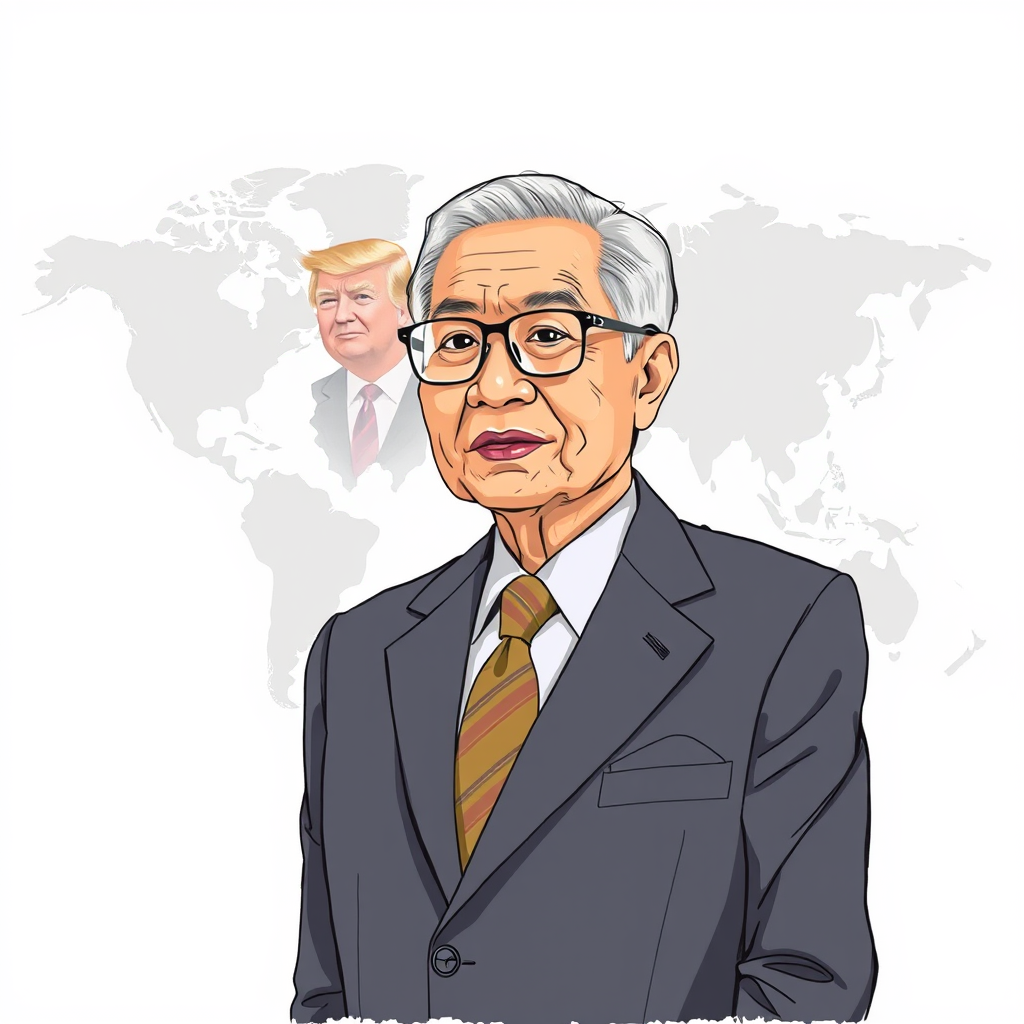Mahathir at 99: Trump is ‘100 Years Behind’

At 99 years old, Malaysia’s longest-serving Prime Minister, Mahathir Mohamad, remains a strikingly active and opinionated figure, offering a critical lens on global affairs despite leaving office in 2020. He rises before 9 a.m. and works diligently, continuing to comment on domestic and international issues. Mahathir attributes his continued vitality to staying mentally engaged, believing inactivity leads to a loss of power.
Born into a working-class family, Mahathir rose through the ranks, becoming Prime Minister in 1981 and leading Malaysia for 22 years. He briefly left office in 2003, only to return in 2018 amidst a massive corruption scandal involving billions of dollars. As he approaches his 100th birthday, he views the current world stage with increasing dismay.
Mahathir expresses deep concern over the direction of U.S. foreign policy, particularly under Donald Trump. He warned of “disaster” should Trump return to power, a prediction he maintains holds true. He criticizes Trump’s proposals – annexing territories, disregarding the rights of people – as relics of a bygone era. While never a staunch supporter of traditional American governments, he also faults the Biden administration’s support of Israel and NATO expansion, accusing them of provoking Russia.
He sees a pattern of hypocrisy in U.S. foreign policy, noting the differing standards applied to Ukraine and Israel, and believes this undermines American credibility. Mahathir champions the developing and Islamic world, voicing frustration with perceived double standards. He acknowledges Malaysia’s economic growth under his leadership as “Asia’s fifth tiger” but also recognizes criticisms of his authoritarian tendencies and centralization of power.
His tenure saw the consolidation of power in the Prime Minister’s office and the implementation of affirmative action policies favoring the Malay majority. While acknowledging the need for economic development, he defends his actions as necessary for national progress. He recounts a meeting with Vladimir Putin in 2005, where the Russian President was surprised by the lack of security at Mahathir’s home, and notes Putin’s interest in Malaysia’s industrialization.
Mahathir attributes the conflict in Ukraine to NATO expansion, arguing that the alliance should have been dissolved after the fall of the Soviet Union. He believes the West provokes Russia and sees a pattern of Europe seeking enemies. He defends Anwar Ibrahim’s decision to engage with Putin, stating he would have done the same.
Throughout his long career, Mahathir has clashed with his successors, a pattern he attributes to their failings. He accuses Anwar Ibrahim, his former protégé, of corruption and believes the current government is targeting him for political reasons. He views the system he left behind as flawed, questioning why there aren’t more checks and balances.
Mahathir’s perspective, while often critical, offers a unique insight into global affairs from a leader who has witnessed decades of change. He remains convinced that Trump is “100 years behind the times” and believes the world needs leaders who understand the complexities of the modern era. His unwavering convictions, even at 99, make him a compelling, if controversial, voice on the international stage.